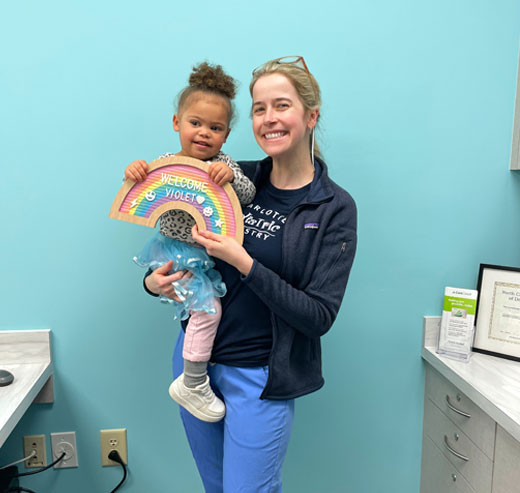Just as everything else, children develop wisdom teeth at different ages. However, the average age range for wisdom teeth to start coming in is 17 to 24. Due to their late eruption, these teeth can cause problems. For some people, wisdom teeth never erupt and cause no issues. For others, wisdom teeth need to be removed to prevent pain, infection, or crowding. Charlotte Pediatric Dentistry explains everything you need to know about wisdom teeth for your teenager.
How to Know Wisdom Teeth are Coming In
It’s likely that your teenager’s wisdom teeth are pushing their way through the gums if they have been complaining of or experiencing:
- Jaw pain
- Swelling of the gums or the jaw
- Bleeding or tender gums
- Bad breath or bad taste in the mouth
- Difficulty opening mouth
- Headaches
Issues Caused By Wisdom Teeth
If you suspect or know that your teenager has wisdom teeth coming in, it’s important to monitor how they come in. Charlotte Pediatric Dentistry recommends bringing your teen in for an exam and X-rays. When wisdom teeth begin to erupt, there is a risk of:
- Partial eruption. If one or multiple wisdom teeth only erupt partially, this leaves the gum tissue open and allows bacteria to enter and cause an infection. This leads to stiffness, swelling, and pain.
- Sometimes, wisdom teeth just don’t have enough space to erupt completely. This causes the tooth to emerge at an odd angle and create pressure against other teeth. An impacted wisdom tooth may partially emerge so that some of the crown is visible (partially impacted), or it may never break through the gums (fully impacted). Impaction can cause a domino-effect of issues, including gum disease, decay, cysts, and crowding of other teeth.
How to Know if Wisdom Teeth Need to be Removed
More often than not, wisdom teeth are impacted and need to be removed to protect your teen’s smile. If the wisdom teeth are “trapped” below the gums or are erupting at an angle that will push against the other teeth, it is likely they will need to be removed.
While you can't keep an impaction from occurring, it’s important to keep your teenager’s regular six-month dental appointments for cleaning and checkups. These routine appointments enable the dentist to monitor the growth and emergence of wisdom teeth. Regularly updated dental X-rays can indicate impacted wisdom teeth before any symptoms develop.
If you have more questions about wisdom teeth development or removal, contact Charlotte Pediatric Dentistry.








